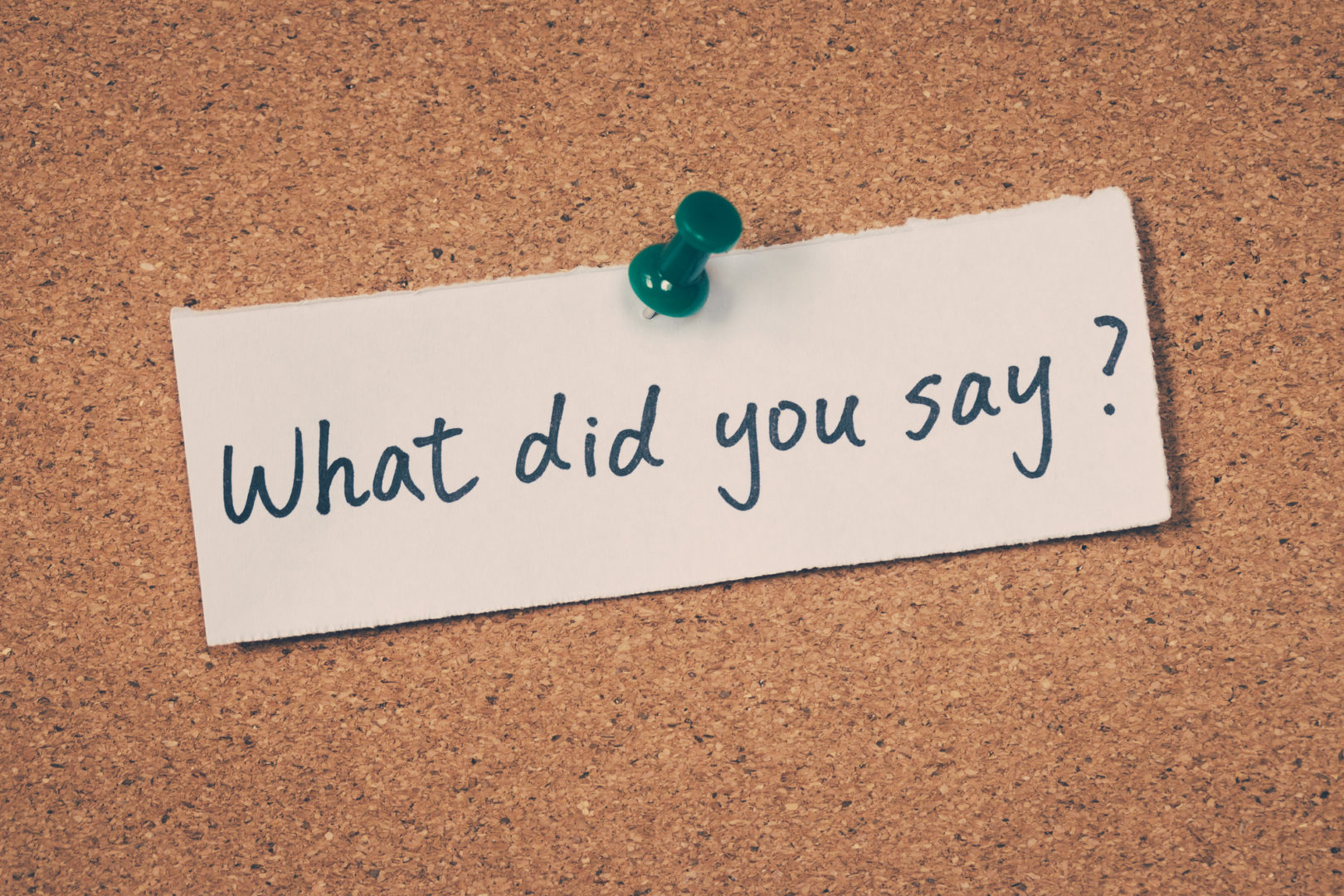This is for all of us. Every single one of us can identify with not saying what we mean, or at least not defining it.
Kids don’t come with a manual or a dictionary. Even the trusty internet can’t help with this thorny communication problem, presuming the child is old enough to navigate it in the first place.
You see, we make statements that don’t offer any real instruction. When you stop and think about it, what exactly does “Be polite” mean? Although there’s no definition given or implied in the words used, we genuinely expect our kids to make ‘polite’ happen! And we expect them to do it without knowing why. Really, there is nothing solid to hang the ‘polite’ hat on.
Here’s a brief exercise for you. Ask as many people as you can to write down their ideas of what it means to be polite. Don’t share results until you have all the responses, whether that’s 2 answers or 20.
I bet there will be some common ground like “Use your manners.”
Again, I say – what??
I’ll also bet that not all of the answers are the same and some thought had to go into it. That being the case, what chance does the child have of answering the call to “Be Polite?”
Some children can get an idea from what they see others do, but others cannot. They are less likely to understand abstract concepts if the child has ASD or a processing issue, diagnosed or otherwise. All of us can have a problem with the abstract at times.
Reference points in the environment and concrete examples are needed to help the child do what you are asking of them.
What else do we commonly say to our kids?
Hmmm…
“Stop it!” or “Don’t DO that!”
Okay, that’s pretty clear. You likely mean the child should not do whatever it is he is currently doing.
I wonder if the child knows which ‘it’ or ‘that’ you mean?
Aaaand, we forgot to say what the child should do instead. Uh oh.
Ideas? How about “Instead of banging on the wall with the ladle, you could play with these Legos instead. I’d like you to find something that is quiet to do.”
You may not get immediate agreement with the suggested switch to Legos. On the other hand, you might be pleasantly surprised. You may need to try another option or two, but you have now opened the possibility of a peaceful transition to a quiet activity that junior will find acceptable. And you’ve done so while not leaving him feeling like he is in your way, or that you find him to be a pest.
I call any transition from noisy to quiet activities a ‘win-win.’
Then there is the simple but loaded “NO!”
Wait. What?
Am I saying that the word ‘No’ is off limits?
Well. No.
Haha. Sorry, I just had to.
So, what am I saying here?
“No” is perfectly fine to say. It would be difficult, if not impossible, to avoid. But what can you add to it? Could you offer an alternative – a quiet, non-headache making activity / solution?
Is there another way to say “no” that doesn’t spark an immediate shriek of protest?
Perhaps an example or two is needed here.
Your child hits you to get your attention. What do you do?
Scenario #1: “No! Don’t hit mommy!” followed by a smacked hand, refusal to interact further with the child etc. etc.
Scenario #2: “Do you want my attention? How about you [do this] instead? Yay! Just like that!” Then show the child what you would like them to do instead. Hand on your arm? Tap your arm? Saying “excuse me?” Much depends on how your household works and what you are most receptive to. I suggest you don’t show them something that is likely to drive you nuts when used repeatedly. The key here is to give the child what they are asking for as soon as possible after they ask you the right way. That’s reinforcement and that’s how you get the behavior you want to see more and more, instead of the behavior you don’t want to see.
What if you can’t or won’t give them what they want?
That happens, sure.
When your child wants to do something that is not available to them right now, such as waking mommy up from a well-earned nap (probably not going to go well) or going out to the park when it’s nearly dinner time, you’re going to say “no,” as most of us would. But I urge you to be ready to quickly offer something else that is available. For example, you can offer a different time / day for the requested activity that they can’t have right now, and you can suggest something else to do right now that is also on their ‘fun’ list.
If the child is old enough, offer a choice of two things that they could have or do. Both should be okay with you, and both should be easily provided. I suggest you don’t keep offering things one after the other or give more than two choices because that leads down the rabbit hole of endless negotiation and no winners.
Don’t do it…
The more practice you and your child have with offering and accepting alternatives, instead of issuing a plain “No” (which is likely followed by a battle, sulking, tantrums etc.), the happier you will be.
Any change in parenting style takes practice. Sometimes, lots of practice.
Try different words, phrases, options, approaches until you find the ones that you feel work for you and your household.
I recommend you use positive responses whenever possible. Punishment does not teach what you do want to see, it just makes everyone unhappy and is most likely to confuse the child.
Ever heard a parent say something like “You know what you did…” while glaring at the child?
Uh huh.
My bet is that the child doesn’t know what the parent thinks they know. Not even close. How could they?
Remember this. The fact is your child really wants to please you.
YOU are their world. At least until they become teenagers, then all bets are off.
YOU are the person they look up to. (With the caveat about teenagers again.)
It is YOU they rely on for nurturing and their survival.
YOU are their role model, their measure for behavior and expectations.
YOU are their window to the world. They see themselves through your interactions with them.
A child treated with respect learns that they are worthy of respect, and they learn how to respect others. Pretty cool, huh?
On the other hand, a child treated with impatience and dismissal learns that they are unworthy, not valued and not heard.
Hey parents – no pressure.
Really, you’ve got this. And I’ve got your back.
– Mikki.



0 Comments